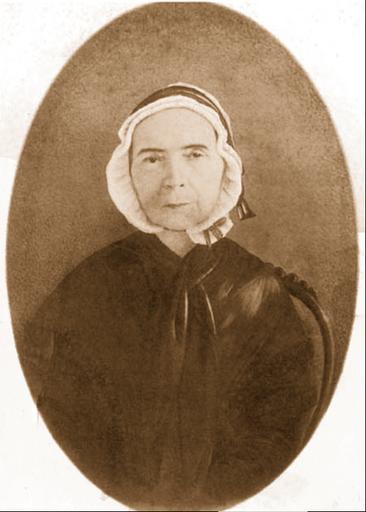MAKE A MEME
View Large Image

| View Original: | Judith_White_Brockenbrough_McGuire.jpg (545x762) | |||
| Download: | Original | Medium | Small | Thumb |
| Courtesy of: | www.flickr.com | More Like This | ||
| Keywords: people monochrome indoor round circle Judith McGuire was the wife of Rev. John P. McGuire, an Episcopal minister and principal of the Episcopal High School near Alexandria, Virginia. Trapped behind enemy lines after the Yankee invasion of Northern Virginia, her family was separated and subjected to great suffering at the hands of “the locust of Egypt”, as she called the invaders. She became a Southern Refugee who decided to maintain a diary of her wanderings during the war years for the purpose of informing a generation too young to remember the truth of the war. Judith's family were early settlers of Essex County, Virginia. Her father, William Brockenbrough was a graduate of the College of William and Mary in Williamsburg. He studied law and then went into private practice. In 1802-03 he represented Essex County in the House of Delegates and became a member of the Council of State in May, 1803. His judicial career started when he was appointed as a judge of the general court on February 7, 1809. On February 20, 1834, he was appointed a judge of the Supreme Court of Appeals but died just four years later. In November 1846, a 33 year old spinster, Judith Brockenbrough married Rev. John Peyton McGuire, a 46 year old Episcopal priest and widower with 5 children, James, John P. Jr., Mary Mercer, Grace Fenton, and Emily. The oldest was thirteen and the youngest six. For six years, the new Mrs. McQuire devoted herself exclusively to caring for her new family. Never having children of her own, she had a close, loving relationship with her step-children In 1853, Mr. McGuire accepted the position of headmaster of the all-male Episcopal High School in Alexandria, at that time attached as a diocesan acadamy to the Virginia Theological Seminary, the second-oldest Episcopal seminary in the nation. Mrs. McQuire was, to the academy students a second mother, gentle, lovable, and tender, adored by the boarding school boys who had never before left home. In 1861, the McGuires held a respected position in Alexandria Society. With the beginning of hostilities, it all fell apart. The high school was closed on May 3, with only thirteen students left to pack their luggage and start for home. Sons James and John were drilling in a nearby confederate camp and the daughters were sent to an aunt in Clark County near the Blue Ridge Mountains. When the McGuires learned on May 25 that Union solders were crossing the Potomac to occupy Alexandria, they abandoned their home and headed west, among the first of tens of thousands of Civil War refugees. For four years, they lived a transient existence, moving thirty-four times searching for stability. Judith McGuire was the wife of Rev. John P. McGuire, an Episcopal minister and principal of the Episcopal High School near Alexandria, Virginia. Trapped behind enemy lines after the Yankee invasion of Northern Virginia, her family was separated and subjected to great suffering at the hands of “the locust of Egypt”, as she called the invaders. She became a Southern Refugee who decided to maintain a diary of her wanderings during the war years for the purpose of informing a generation too young to remember the truth of the war. Judith's family were early settlers of Essex County, Virginia. Her father, William Brockenbrough was a graduate of the College of William and Mary in Williamsburg. He studied law and then went into private practice. In 1802-03 he represented Essex County in the House of Delegates and became a member of the Council of State in May, 1803. His judicial career started when he was appointed as a judge of the general court on February 7, 1809. On February 20, 1834, he was appointed a judge of the Supreme Court of Appeals but died just four years later. In November 1846, a 33 year old spinster, Judith Brockenbrough married Rev. John Peyton McGuire, a 46 year old Episcopal priest and widower with 5 children, James, John P. Jr., Mary Mercer, Grace Fenton, and Emily. The oldest was thirteen and the youngest six. For six years, the new Mrs. McQuire devoted herself exclusively to caring for her new family. Never having children of her own, she had a close, loving relationship with her step-children In 1853, Mr. McGuire accepted the position of headmaster of the all-male Episcopal High School in Alexandria, at that time attached as a diocesan acadamy to the Virginia Theological Seminary, the second-oldest Episcopal seminary in the nation. Mrs. McQuire was, to the academy students a second mother, gentle, lovable, and tender, adored by the boarding school boys who had never before left home. In 1861, the McGuires held a respected position in Alexandria Society. With the beginning of hostilities, it all fell apart. The high school was closed on May 3, with only thirteen students left to pack their luggage and start for home. Sons James and John were drilling in a nearby confederate camp and the daughters were sent to an aunt in Clark County near the Blue Ridge Mountains. When the McGuires learned on May 25 that Union solders were crossing the Potomac to occupy Alexandria, they abandoned their home and headed west, among the first of tens of thousands of Civil War refugees. For four years, they lived a transient existence, moving thirty-four times searching for stability. | ||||